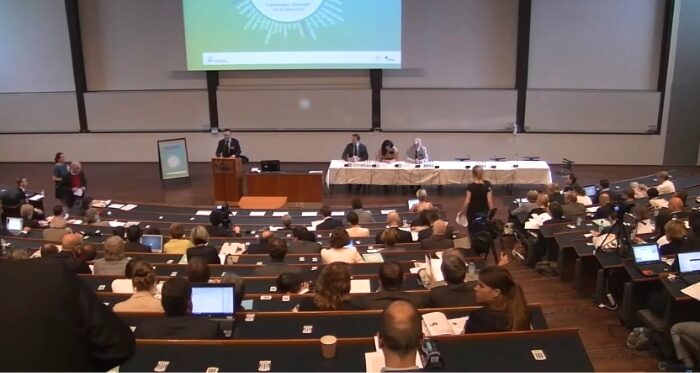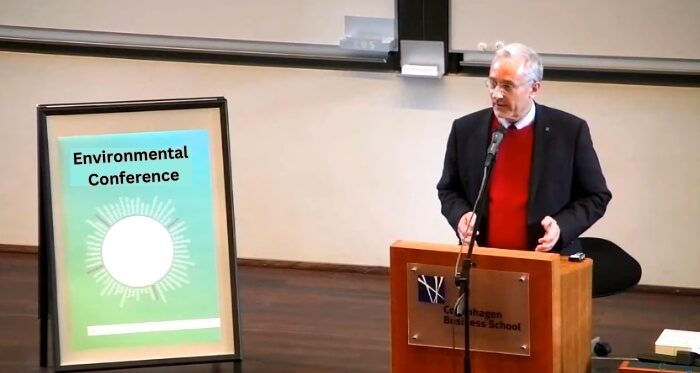Environmental issues are becoming more complicated and critical. We look for new ways to address these issues and develop for a sustainable future all the time. In view of this context, you might be wondering, what is environmental conference?
Environmental conferences are crucial gatherings or meetings. They serve as platforms where experts and enthusiasts come together to discuss, address, and deliberate solutions for environmental issues.
Not only do these conferences shed light on the most pressing environmental challenges, but they also emphasize the promotion of sustainability. Such events highlight the collective responsibility we hold towards our planet and the need to continually strive for greener solutions.
Purpose of the Conference
Environmental conferences play a pivotal role in advancing the global sustainability agenda. They serve as a nexus for thought leaders, experts, and activists to converge and exchange ideas. As a result, innovative solutions are developed to address pressing environmental issues.

These gatherings also amplify the urgency of ecological issues for the broader public. As with international science conferences, they facilitate the sharing of research, findings, and success stories, creating awareness and driving collective action. Shared knowledge empowers individuals and organizations to adopt more sustainable practices, ultimately contributing to a greener planet.
Moreover, these conferences act as catalysts for policy change at various governmental levels. Decision-makers and stakeholders get first-hand insights into the latest trends and challenges, which inform the development of more effective environmental policies. This crucial bridge between research and policy ensures that the global community can work together to promote a healthier, more sustainable world.
What is Environmental Conference?
The sustainability of the environment is a major issue. One query sticks out among the many forums and events held to address this issue: What is environmental conference? These conferences have a significant impact on how we tackle environmental challenges.
Environmental conferences serve as a platform where experts, activists, and thought leaders come together. They aim to tackle urgent environmental challenges by sharing research, findings, and innovative solutions. Attendees gain a comprehensive understanding of the current state of environmental affairs.
These conferences act as a nexus for collaboration among nations, industries, and individuals. They provide a vital space for brainstorming and sharing sustainable practices and technologies. Consequently, they play a crucial role in shaping the future of our planet.
Furthermore, environmental conferences not only educate but also inspire action. Attendees leave these gatherings equipped with knowledge and a renewed commitment to implementing positive changes. As such, these conferences act as catalysts for global initiatives aimed at creating a more sustainable and environmentally conscious world.
Types of Environmental Conferences
Environmental conferences come in various forms, each tailored to address specific aspects of sustainability and ecological concerns. These gatherings play a pivotal role in advancing our understanding and action on environmental issues. Here are some of the key types of environmental conferences:
Global Summits
Global environmental summits, such as the United Nations Climate Change Conferences (COP), bring together nations from around the world to discuss and negotiate global environmental agreements and strategies. They focus on critical issues like climate change mitigation and adaptation.
Regional Conferences
Regional conferences, like the European Environment Agency (EEA) Conferences or the African Ministerial Conference on the Environment (AMCEN), concentrate on region-specific environmental challenges and solutions, encouraging collaboration among neighboring countries.
National and Local Gatherings
Environmental conferences at the national and local levels, such as those aligned with the National Environmental Policy Act (NEPA) in the United States, address country-specific concerns and engage local communities in environmental decision-making processes.
Scientific Symposia
Scientific conferences concentrate on the latest research findings and innovations in environmental science and technology. These gatherings facilitate knowledge sharing among scientists, researchers, and academics.
Industry Conferences
Industry-specific environmental conferences, like those in the renewable energy or green technology sectors, bring together professionals and businesses to discuss advancements and best practices for sustainable industries.
Community-Based Conferences
Community-led environmental conferences empower local groups and individuals to address environmental challenges specific to their regions. These gatherings focus on grassroots initiatives and community engagement.
Each type of environmental conference serves a unique purpose, contributing to our collective efforts to safeguard the planet. By bringing together experts, stakeholders, and concerned citizens, these conferences play a vital role in shaping policies, sharing knowledge, and driving action towards a more sustainable future.
Who Attends the Environmental Conference?
The diversity of attendees at environmental conferences reflects the international scope of environmental problems and the demand for comprehensive solutions. Here is a breakdown of who shows up to these important events:
Government Representatives
High-ranking officials, ministers, and diplomats from various countries attend to discuss and negotiate international environmental agreements and policies. They bring the authority to implement changes on a national and global scale.
Non-Governmental Organizations (NGOs)
Environmental NGOs play a crucial role in advocating for environmental protection, sustainable practices, and social responsibility. Their expertise and passion drive initiatives and hold governments and corporations accountable.
Scientists and Researchers
Environmental scientists and researchers attend to present their findings, share insights, and engage in discussions that contribute to the global body of knowledge on environmental issues. Their expertise forms the foundation for evidence-based decision-making.
Industry Leaders and Businesses
Representatives from industries related to environmental solutions, renewable energy, and sustainable technologies attend to showcase innovations and collaborate on green initiatives. Their involvement is essential for driving sustainable business practices.
Activists and Advocates
Environmental activists and advocates, including youth activists like Greta Thunberg, participate to raise awareness, influence policies, and hold stakeholders accountable. They provide a powerful voice for environmental action and justice.
Local Communities
In community-focused environmental conferences, residents and local organizations attend to address issues specific to their regions, fostering grassroots initiatives. Their engagement ensures that solutions are tailored to local needs and realities.
These diverse participants collectively contribute to the multifaceted nature of environmental conferences. Their engagement and collaboration are essential for addressing global environmental challenges and driving meaningful change toward a more sustainable future.
Benefits of Participating in an Environmental Conference
Taking part in environmental conferences is a great way for people and organizations to discuss important topics and work toward a more sustainable future Here is an in-depth look at the advantages:
- Knowledge Enrichment: Conferences provide access to cutting-edge research, insights, and innovations, enhancing attendees’ understanding of complex environmental challenges and solutions.
- Networking Opportunities: Attendees can connect with like-minded individuals, experts, and potential collaborators, fostering valuable professional relationships that may lead to impactful partnerships.
- Idea Exchange and Innovation: Conferences encourage the exchange of ideas, promoting creative solutions and inspiring action on pressing environmental issues through brainstorming and collaborative sessions.
- Policy Influence: Participation allows individuals and organizations to advocate for policy changes, share expertise, and influence decision-makers to enact environmentally friendly legislation and regulations.
- Skill Development: Workshops and sessions often offer skill-building opportunities, empowering attendees with practical tools and strategies for implementing sustainability practices.
- Global Perspective: Conferences offer a global perspective, highlighting the interconnectedness of environmental challenges and solutions across borders, and enriching attendees’ understanding of worldwide issues.
- Inspiration and Motivation: Interactions with passionate environmentalists can ignite a renewed commitment to environmental causes and activism, motivating attendees to take action.
- Awareness Spreading: Attendees can amplify awareness of critical environmental issues within their communities and beyond, becoming ambassadors for change.
- Showcasing Innovations: For businesses, conferences provide a platform to showcase sustainable products and technologies, gaining exposure and potential partnerships for further development.
- Personal Fulfillment and Impact: Participating in efforts to address environmental challenges brings a sense of personal fulfillment and a realization of one’s contribution to a better world. It’s a chance to make a meaningful impact on the planet’s future.
Conclusion
What is environmental conference? is a common query that arises when we consider ways to protect the environment. The earth and how to protect it are the main topics of discussion at these large gatherings, to put it simply. It is a location where professionals, activists, and common people assemble to exchange knowledge and experiences.
Attendees of these events pick up new environmental preservation techniques. They learn about the most recent studies, gain knowledge of noteworthy initiatives, and make friends with people who have similar interests. It resembles a large brainstorming session where everyone contributes to the solution-finding process.
These conferences are valuable. They inspire us, provide us with the means to effect change and serve as a constant reminder that every action counts. Together, we can improve the quality of life in our globe.






